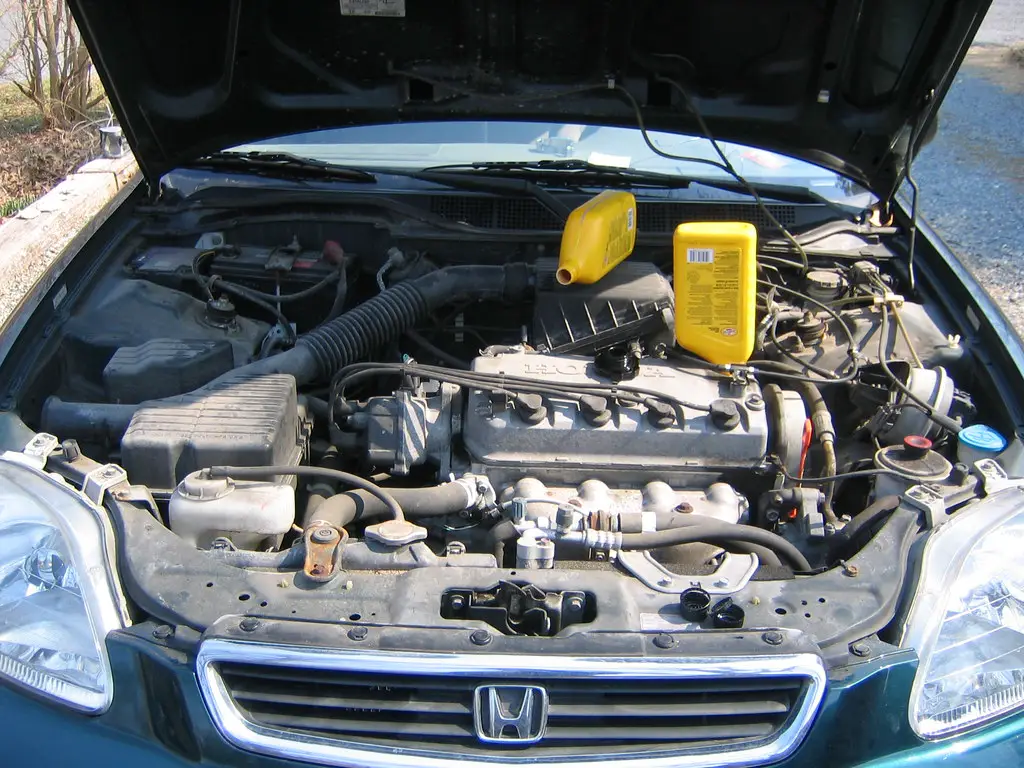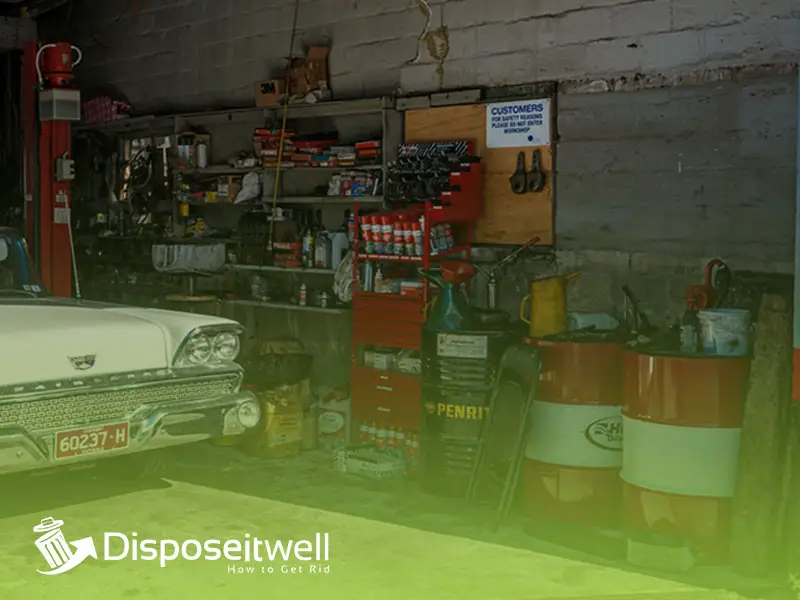Motor oil plays a crucial role in maintaining the efficient operation of an engine. However, the responsible handling of used oil is essential to safeguard our environment from potential harm. Failing to dispose of used engine oil correctly can result in the pollution of water sources, damage to the soil, and even negatively affect the air quality.
It is our collective responsibility to follow appropriate measures when it comes to discarding used engine oil. Recycling is one such method that helps protect our environment and minimize the adverse consequences of incorrect disposal. Together, let’s commit to keeping our Earth clean and sustainable for future generations to enjoy!
How Toxic Is Engine Oil?
It contains a complex mixture of chemicals, including hydrocarbons, heavy metals, and other toxic substances that can be harmful to both human health and the environment. Some of the most harmful compounds found in the product include benzene, toluene, lead, and cadmium.
Benzene, for instance, is a known carcinogen that can cause leukemia and other types of cancer. Toluene, on the other hand, can cause damage to the nervous system, while lead and cadmium are toxic heavy metals that can cause a range of health problems, including kidney damage and respiratory issues.
Furthermore, it can also harm the environment if not disposed of properly. When dumped into the ground, it can contaminate the soil and groundwater, leading to serious ecological problems. Similarly, if spilled into waterways, it can cause harm to aquatic life and disrupt entire ecosystems.
How To Dispose Of Engine Oil?
Here are the steps to follow for disposing of used engine oil:
- Drain the used engine oil into a clean container designed to hold used oil, such as a drain pan or an old oil bottle.
- Seal the container tightly to prevent any spills or leaks during transport.
- Take the container to a recycling center or an auto parts store that accepts the product.
- Confirm that the recycling center or auto parts store accepts it before making the trip by calling ahead.
- Deposit it into the collection tanks or drums provided by the facility.
- It is transported to a the facility where it is cleaned and filtered before being repurposed.
- Wear gloves and avoid skin contact as essential safety precautions when handling.
Things You Should Not Do While Disposing Of Engine Oil
The proper disposal of the waste must take several technical aspects into account to ensure the safety of the environment. When disposing of, you should avoid the following points:
1. Do not pour used engine oil down the drain or onto the ground:
It should never be disposed of by pouring it down the drain or onto the ground. This can lead to serious environmental contamination and harm aquatic life. It can also damage your plumbing and sewage systems. The oil should be collected in a container and disposed of properly at a collection center or recycling facility.
2.It is not advisable to mix used engine oil with anything else:
Mixing it with other substances like antifreeze, transmission fluid, or brake fluid can cause a dangerous chemical reaction and create a hazardous waste that’s difficult and expensive to dispose of. It is imperative to keep these substances separate and dispose of them separately.
3.Used engine oil should not be stored in containers not intended for that purpose:
It should be stored in leak-proof, sealed containers that are clearly labeled as “used oil” to avoid confusion with other fluids. The use of containers not designed for used its storage can result in leaks, spills, and contamination.
4.Do not dispose of used engine oil in regular trash bins or dumpsters:
Disposing of it in regular trash bins or dumpsters is illegal and can lead to fines or penalties. Instead, take it to a designated collection center or recycling facility where it can be properly disposed of or recycled.
By following these technical details, you can ensure that used engine oil is disposed of safely and in an environmentally-friendly manner.
How To Recycle Engine Oil?

- The first step in the process is to collect the used oil.
- The collected oil is then cleaned of impurities such as dirt, metal particles, and water.
- Next, the cleaned oil is pre-treated with chemicals to remove any remaining contaminants and to break down it into its base components.
- The resulting product is then further refined and processed to remove any remaining impurities and restore the oil to its original state.
- During the re-refining process, it is also tested to ensure that it meets the same standards as virgin oil.
- Once it has been fully re-refined, it can be used again as engine oil or as a base oil for other lubricant products.
- Recycling through re-refining is crucial in reducing the environmental impact of oil.
- Re-refining can help conserve natural resources, reduce greenhouse gas emissions, and prevent contamination of soil and water sources.
Why You Should Recycle Engine Oil?
Recycling engine oil is not only eco-friendly for the environment, but it can also save you money in the long run. It is considered hazardous waste and can’t be disposed of like regular garbage. By the process, we reduce the amount of hazardous waste that ends up in landfills, which can contaminate soil and groundwater.
According to the Environmental Protection Agency, recycling and reusing used oil have numerous benefits. Not only does it prevent soil and water pollution, but it also conserves a valuable resource since motor oil does not wear out, it just becomes dirty. Moreover, it takes less energy to produce a gallon of re-refined base stock compared to a base stock made from crude oil. Reusing just one gallon of used motor oil can provide the same amount of lubricating oil as 42 gallons of crude oil.
Furthermore, recycled lubricant can be just as good as new oil when properly refined and tested. It has the same lubricating properties and can be used in many of the same applications. You can also save money on oil changes and maintenance by using recycled oil.
So, if you care about the environment, your wallet, and conserving natural resources, recycling your engine oil is the way to go.
Verdict
Never dump used oil down the drain, in the trash, or onto the ground. Instead, take it to a recycling center or a service station that accepts used oil. Some auto parts stores may also offer oil recycling services. By properly disposing of your used oil, you’re not only protecting the environment, but you’re also doing your part to keep our communities clean and healthy. So let’s do the right thing and make sure our used engine oil ends up in the right hands.
My name is Ella Vicedomine and I’m the founder of this blog. The aim is to start this informational blog to guide people on how to dispose of waste things around in the house but in the right way.

